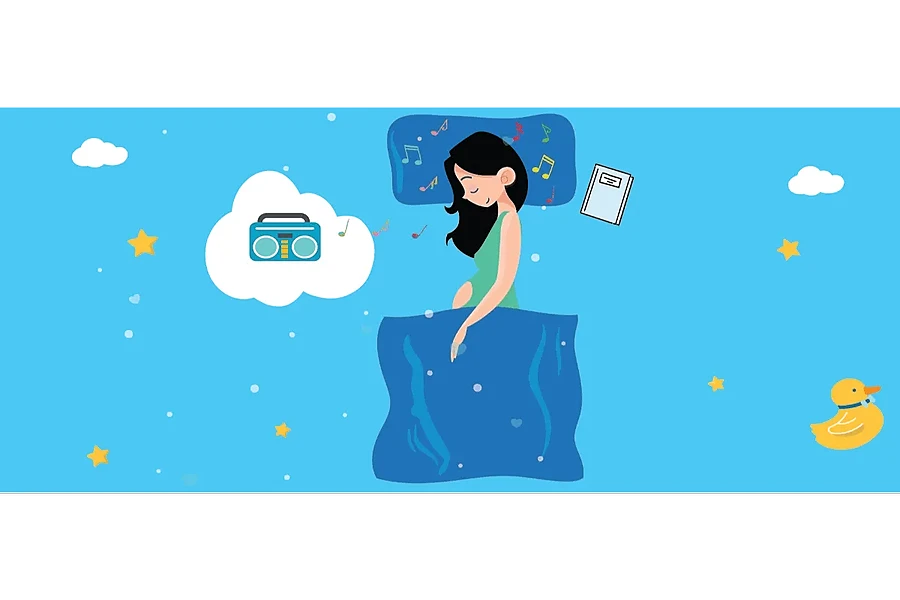Confirm Baby's Age Group
Baby's Age is Less Than 3 Years
Book Demo Session
Only 4 Spots Left!
Only 4 Spots Left!

Jan 13, 2021
Music can be informative, teaching children where they're going in their day, or that it's time to do some kind of activity. The songs tell them what they're going to do. Music helps to relax when we need to calm things down. For example, playing classical music helps to slow down their gestures. Pleasant, theme music can be really calming. Music will help connect children to new academic skills. Learning environments are high-frequency positive environments that young children learn to visually memorise. They also learn to use auditory skills by listening to the word in a novel.
When kids work on a table top activity, I frequently play music. When studying alphabet sounds and math skills, they might hear an alphabet or counting song that helps to reinforce and function in a subconscious manner. The children sing along with the song without understanding that they're learning. Music helps children differentiate various sounds, distinguishing between higher or lower sounds. This may be a child's first exposure to several different sounds that they're not familiar with. Music helps with cognitive development, rhythm, and coordination. Children are swaying and bouncing to music. They clap, tap, or dance to the beat of the song. In this phase, they improve their motor skills and coordination skills, which are helpful for early writing and reading skills. Making music together, children learn to function as a team; each contributes in its own way. Children learn teamwork, sharing, compromise, imagination and focus.
Research indicates that informal musical activities influence hearing segregation and concentration development of preschool and school-aged children. A 2016 study at the Brain and Creativity Institute of Southern California University found that musical experiences in childhood can actually trigger neurological development, especially in the areas of language learning and reading skills. According to the National Association of Music Merchants Foundation (NAMM Foundation), learning to play an instrument will enhance mathematical learning and even strengthen SAT scores. However, academic success is not the only advantage of music education and exposure. Music covers all aspects of child development and school skills, including academic, social-emotional, motor, language, and general literacy. It allows both the body and the mind to function together.
Early exposure to music during early childhood allows them to understand the sounds and meanings of words. Dance on music helps children develop motor skills while encouraging them to believe in self. For children and young adults, music helps to improve memory skills. Children know the rhythm of a song even before they understand the words. Quiet, background music can be calming for infants, particularly during sleep. Loud background music may overstimulate the infant by increasing the noise level of the room. Sing plain, short children's songs. Try to sing one or two lines about bathing, dressing, or eating in front of children while you're doing these activities.
Toddlers are very fond of dancing and listening to music. Repetition, which promotes language and memorization, is the secret to kids' music. Silly songs make young children laugh. Let children replicate rhythms by objects clapping or tapping. Preschoolers love singing only because they sing. They are not self-aware of their ability, and most are willing to let their voices roar. They like songs that repeat words and melodies, use a definite beat in rhythms, and ask them to do stuff. Preschool kids love nursery rhymes and songs about common things such as sports, animals, games, and people. With or without music playing, they also like finger plays and absurd rhymes.
Most young school-aged children are intrigued by children's singalong songs, which involve counting, drawing, or remembering a sequence of events. School-aged children begin to express the likes and dislikes of different types of music. They may be interested in music education, such as children's music lessons. Teenagers may use their musical experiences to establish friendships and set themselves apart from their parents and younger children. They're still trying to hang out and listen to music with a group of friends after school. Teens are still very interested in taking music lessons or playing in the band.
Join Master Parenting Classes for baby's right future.
We have raised your request again, our team will reach you shortly on your registered number.
Our team will reach you shortly on your registered number.
We have raised your request again, our team will reach you shortly on your registered number.